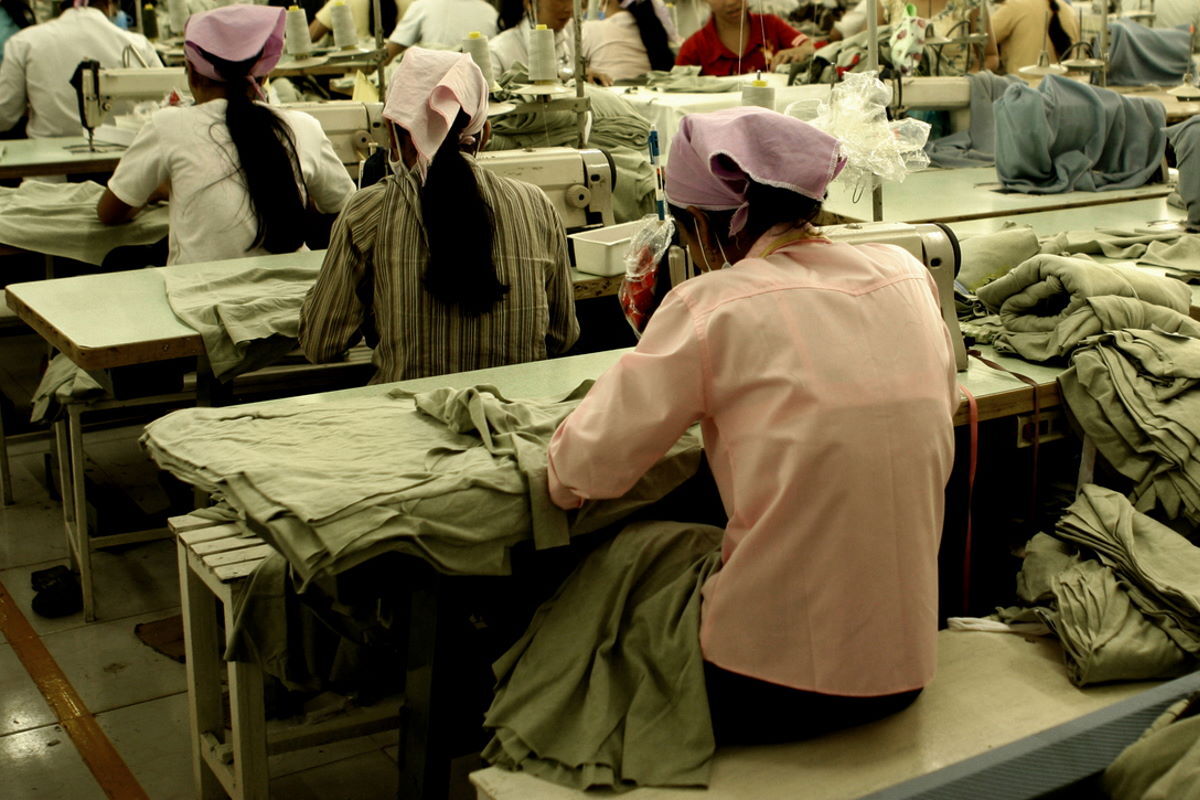Avoiding unethical labour in the supply chain

Alex Saric at Ivalua argues that successful businesses are proactive about ensuring that labour practices in their supply chain are ethical and responsible
In recent years a more intense focus is now being placed on businesses’ credentials when it comes to fair wages, reasonable working hours, and a host of additional factors.
But, today this responsibility goes well beyond the confines of an organisation’s own facilities. It must also cover due diligence across the supply chain to reduce the risk of unethical labour and eliminate the most serious cases, such as modern slavery.
However, at first glance, this isn’t a scenario that’s being played out in reality. According to a recent report, suppliers confirmed that only 42% of buyers are asking them to prove they can identify and avoid using organisations paying workers less than minimum wage further down the supply chain.
And the story wasn’t much better for protection against modern slavery or working unreasonable hours, with only 45% of buyers following up on these issues. Additionally, more than half (58%) of suppliers revealed that buyers rarely or never include responsible labour practices as part of contracts and agreements.
As such, procurement needs to be the driving force that enforces standards on ethical labour. In fact, it can be the gateway to encouraging responsible labour across an entire value chain.
In many ways, procurement has an opportunity here to further Corporate Social Responsibility initiatives and add strategic value. It can achieve this by securing more sustainable and productive partnerships in the years to come, while also boosting the reputation of their wider organisation by identifying and eliminating unethical labour practices.
With so few organisations working responsible labour requirements into their supplier onboarding and management process, it also leaves a gap in the market for those who place responsible labour as a priority to stand out from the crowd. But they must do so now.
Long term ramifications
Following a host of high-profile stories and wider industry statistics, it’s clear that organisations who don’t take steps to improve downstream labour practices will pay the price in the long term.
According to the International Labour Organisation (ILO), there are 16 million people currently being exploited in the private sector through forced labour. Meanwhile, the latest UK government report on modern slavery identified more than 10,000 potential victims on British soil alone.
Narrowing the search, it isn’t difficult to find incidents of these statistics being played out. In 2020, online retail giant Boohoo faced allegations of poor working conditions and underpayment of staff through an indirect supplier.
The repercussions highlight the significance of appearing to be responsible, and of adopting responsible practices. In the short-term, Boohoo saw £1 billion wiped from its share value alongside severe reputational damage. Longer-term, the company is still facing the consequences, being forced to publish a full list of its suppliers and sever ties with hundreds of UK manufacturers to meet a pledge on transparency.
To prevent more examples in the future, regulatory bodies – particularly in the supply chain – have responded and are getting tougher.
In the UK, fines and even prison sentences are on the table, in accordance with proposed changes to its Modern Slavery Act. And similar regulations and sanctions are being replicated across Europe: a critical show of consistency considering that most large-scale businesses will have international supply networks.
This problem is not just found at the top of the supply chain, however. Most suppliers (78%) have not yet implemented plans to identify and eliminate modern slavery downstream in their own suppliers and subcontractors. The same percentage have failed to spot unreasonable hours. And 77% have the same issue when it comes to paying below minimum wage.
Taking responsibility for the wider ecosystem
Ultimately, organisations must initiate a stronger clampdown to look after the health, safety and wellbeing of staff across the supply chain. But, on a day-to-day basis, it shouldn’t take the threat of fines or jail time to convince a business to purchase responsibly.
Even from a business perspective, aligning and partnering with other like-minded and responsible companies is far more sustainable and lucrative in the long run. In fact, 77% agreed that labour practices give them a competitive edge when tendering for business.
This is where procurement comes to the fore, helping organisations gain a 360-degree view of all supplier relationships, including information on labour standards, and equipping stakeholders across the supply chain with the tools needed to collaborate on responsible labour initiatives.
Procurement can be the filter that separates out those who are addressing labour in a responsible way, starting at the selection process and continually assessing suppliers to ensure compliance. It can be an industry gatekeeper that allows ethical suppliers to rise to the top, while putting pressure on those who are currently behind the curve to catch up and make changes.
In essence, procurement can be the means for an organisation, sector, and industry as a whole to improve labour practices collaboratively.
Responsibility is very rarely a solo pursuit. And in this case, by auditing and conducting due diligence with ethical labour as a core component, the supply chain can become a more responsible ecosystem in the years to come.
Alex Saric is a Smart Procurement Expert at Ivalua
Main image courtesy of iStockPhoto.com

Business Reporter Team
Related Articles
Most Viewed
Winston House, 3rd Floor, Units 306-309, 2-4 Dollis Park, London, N3 1HF
23-29 Hendon Lane, London, N3 1RT
020 8349 4363
© 2025, Lyonsdown Limited. Business Reporter® is a registered trademark of Lyonsdown Ltd. VAT registration number: 830519543





